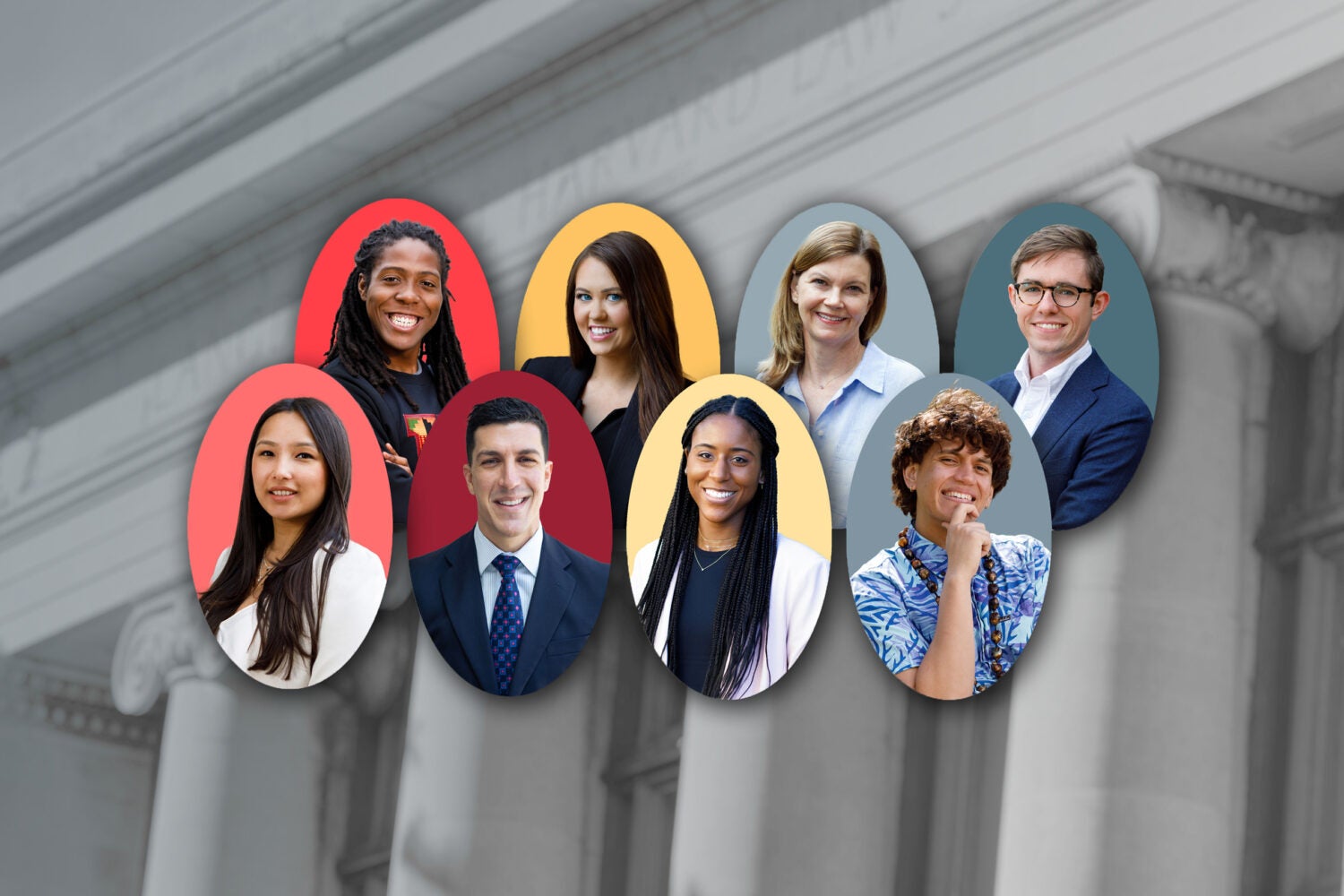Harvard Law students bring unique experiences to law school and all have tailored their academic careers to explore their individual interests, while contributing to the greater community in a myriad of ways. As they prepare to graduate, several members of the Harvard Law School Class of 2022 reflect on the interests they brought to — and the experiences and lessons they will take from — their time at Harvard Law.
Jackson Beard
‘I felt so strongly that this was the right place’
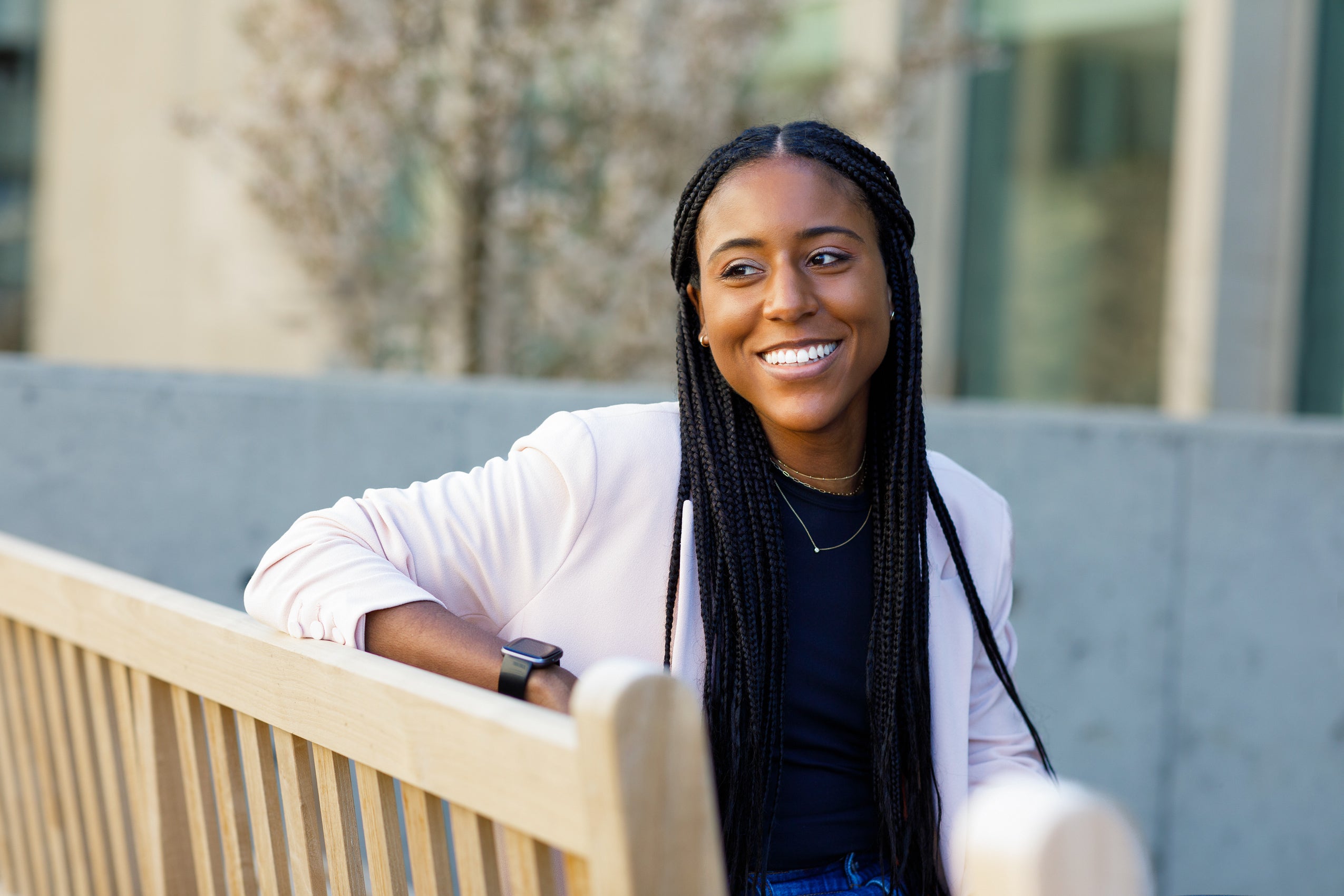
Jackson Beard has known she wanted to be a lawyer since she was 14 — and she can recall the exact moment that set her on her path to Harvard Law School and her future career.
It was during a high school history class, when Beard’s teacher was giving a lesson on international war crimes and the International Criminal Court. “I remember being shocked and horrified by what had happened in the past, and what was continuing to happen,” she says. “I approached my teacher asking, ‘Well, what do we do about this? We know who is responsible for so much of what has happened, so what are the consequences?’”
Beard, who will graduate on May 26, says her teacher told her that the courts were one avenue used to hold war criminals accountable — but that justice could still sometimes be elusive. For Beard, that was not good enough. “That’s when I knew I wanted to be a lawyer. I thought it would put me on a track to do something about it.” Read Jackson’s story
Dionne Koller Fine
A tenured law professor becomes a student again
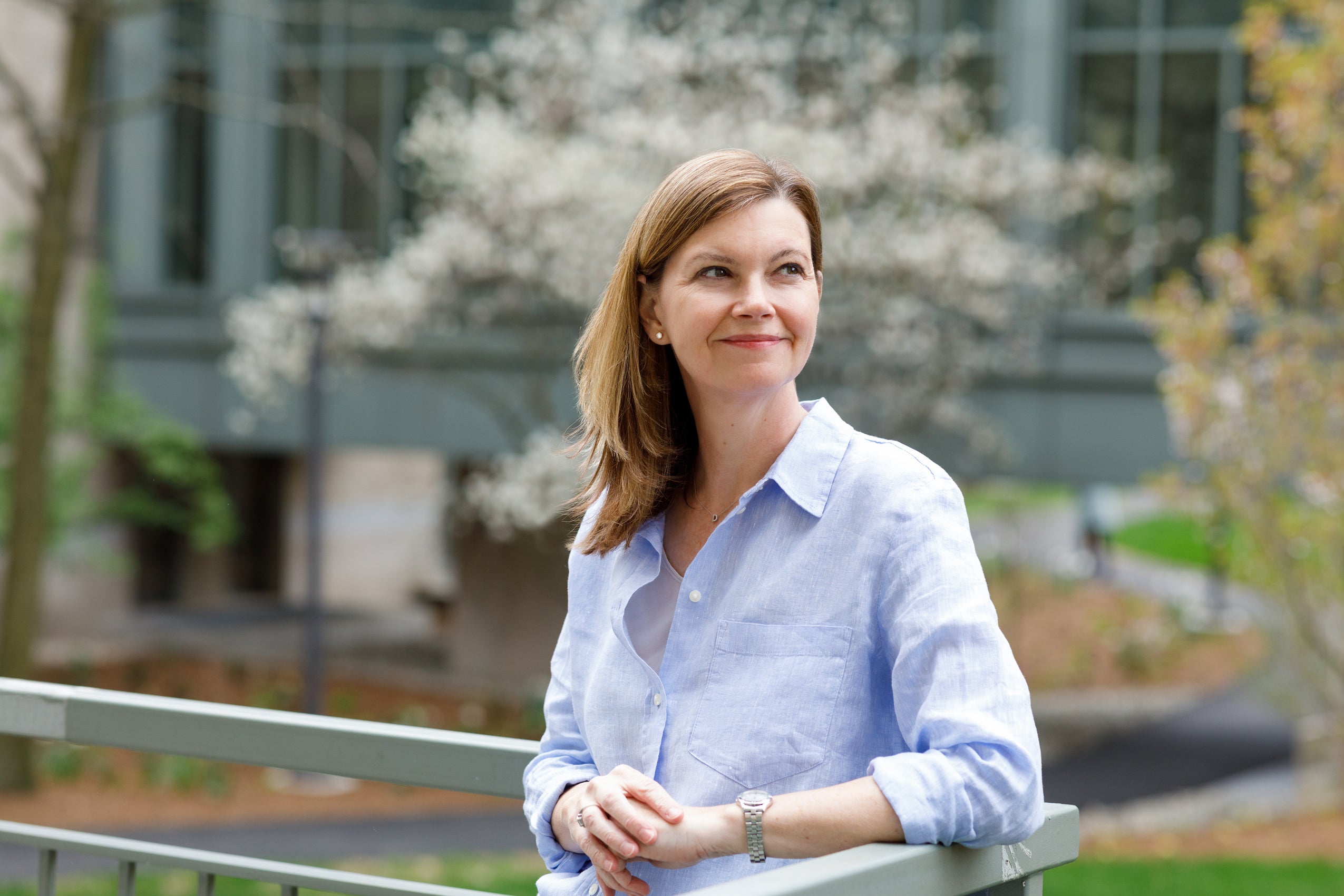
In July 2020, Dionne Koller Fine appeared before the U.S. Senate Committee on Commerce, Science and Transportation. Introducing herself as a professor of law at the University of Baltimore and director of its Center on Sports and the Law, she testified in no uncertain terms against efforts by the National Collegiate Athletics Association to secure an antitrust exemption that would preserve its restrictions against endorsement income for college athletes.
A year later, Koller arrived in Cambridge to undertake a very different role — as a student in Harvard Law School’s Master of Laws (LL.M.) program. Although she would advise other academics and aspiring law teachers that there are many different times to pursue graduate study, she had not expected to do so herself, particularly in mid-career. But, in planning a sabbatical year after the conclusion of an appointment as Baltimore Law’s associate dean for academic affairs, Koller realized that this timing was perfect for her. Read Dionne’s story
William Greenlaw
Setting his sights on the ‘least, lost, and left out’
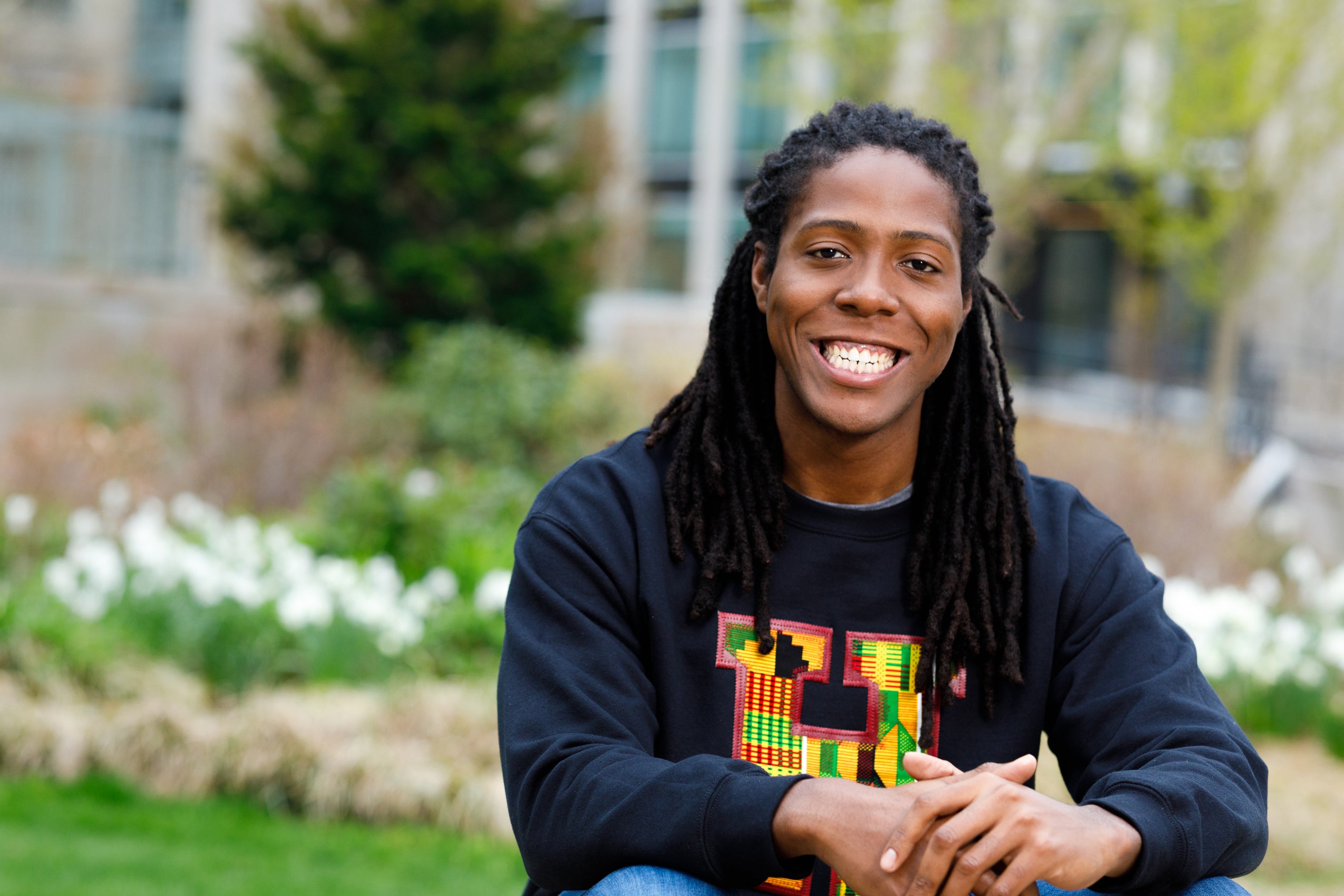
If life itself is our greatest teacher, then a student who can apply lived experience to classroom learning has the benefit of a superior education.
William Greenlaw not only has these tools, but he is already applying them to the law. Having grown up in what he describes as a working-class family in Indiana, Greenlaw has already provided legal services for a labor union and co-founded (with Abraham Barkordar ’22) the Plaintiffs’ Law Association at Harvard Law School, for which he also served as co-president.
“Life cannot only be just grasp, greed, and gain. Instead, we should do our best to focus on the least, lost, and the left out,” said Greenlaw, paraphrasing his pastor (“among others,” he noted). At Harvard Law, his goal has been “to figure out how best I could do that.”
Greenlaw has long championed the underdog. As a data analyst at the New York State attorney general’s office before coming to Harvard Law School, he helped fight wage theft and anticompetitive corporate mergers, identifying white-collar criminals “who were using their power and privilege in society to take advantage of people who didn’t have those things.”
But after beginning law school, the 2017 Harvard College graduate had difficulty figuring out how to replicate that kind of experience. “There were a lot of opportunities in big law, but there weren’t many opportunities to work at plaintiffs’ firms — or plaintiff-adjacent firms — that would do the kind of work that we were envisioning,” he said. That work, he explained, is often “cases that people care about, whether it’s holding big tech accountable for privacy violations or large industries accountable for antitrust violations.”
Such efforts not only help individual clients with their suits, he noted. Ultimately “through strategic litigation, we can compel bad actors to alter the systems of their own design.” Read William’s story
J.V. Langkilde
Inspired by aiga and community
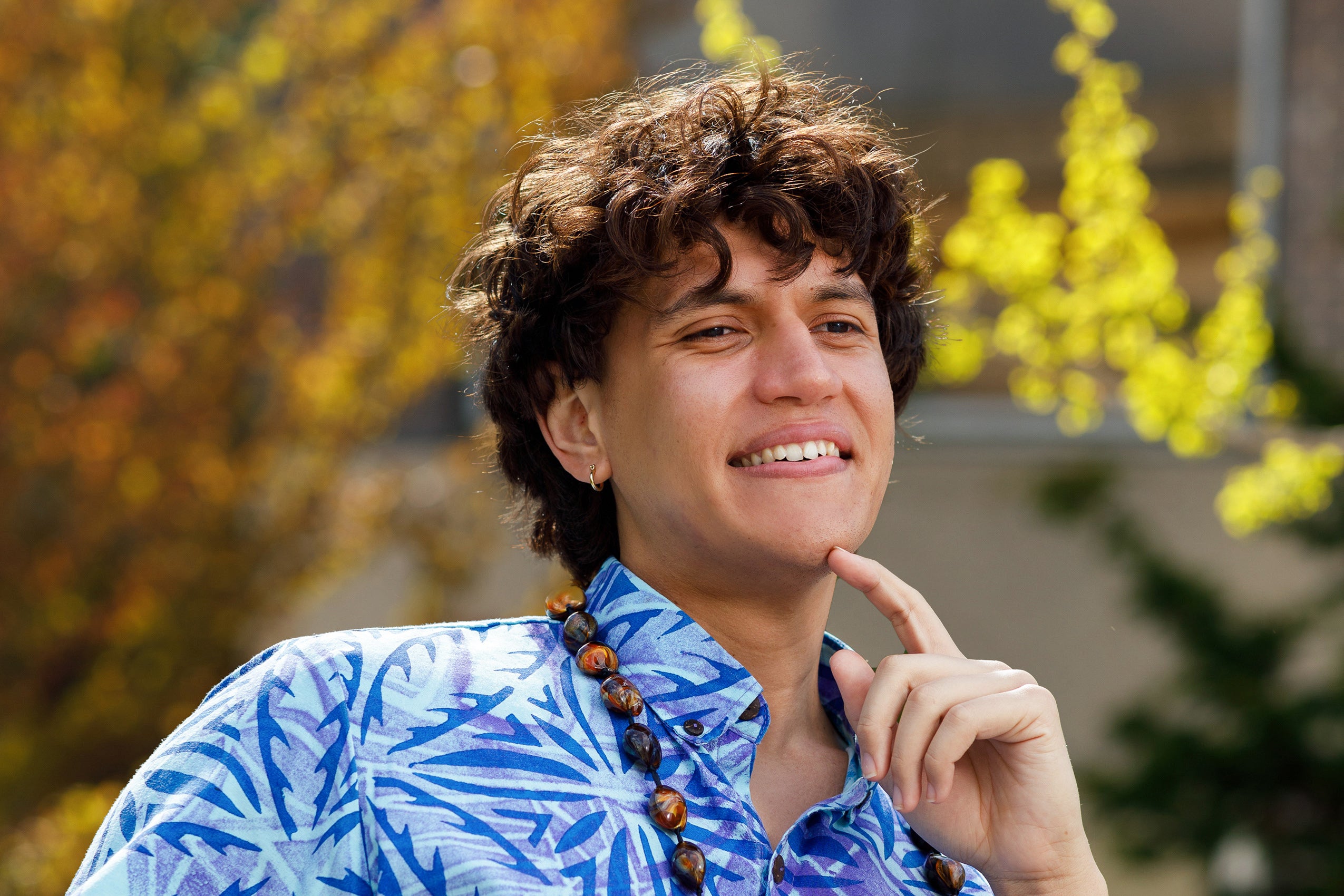
For J.V. Langkilde, it’s all about community.
“Growing up in American Samoa, I lived near a lot of family,” he says. “We had a plot of land where my mother and her children, her brother and his children, and their sister and their children, all lived. That’s pretty typical for Samoan families — we not only live near one another, but sometimes even have intergenerational, inter-familial households.”
Born in Hawaii and raised in American Samoa, Langkilde says his background, coupled with the Samoan emphasis on aiga — family — have instilled in him a deep appreciation for connection across people. It is this passion for building and fostering relationships that Langkilde says has defined much of his life — including his time as a student at Harvard Law School, from which he will graduate on May 26.
“It’s such an important element of Samoan culture, the importance of community, of helping others,” he says. “It shapes me to this day.” Read J.V.’s story
Cara Mund
‘I was able to feel like I was making an impact’
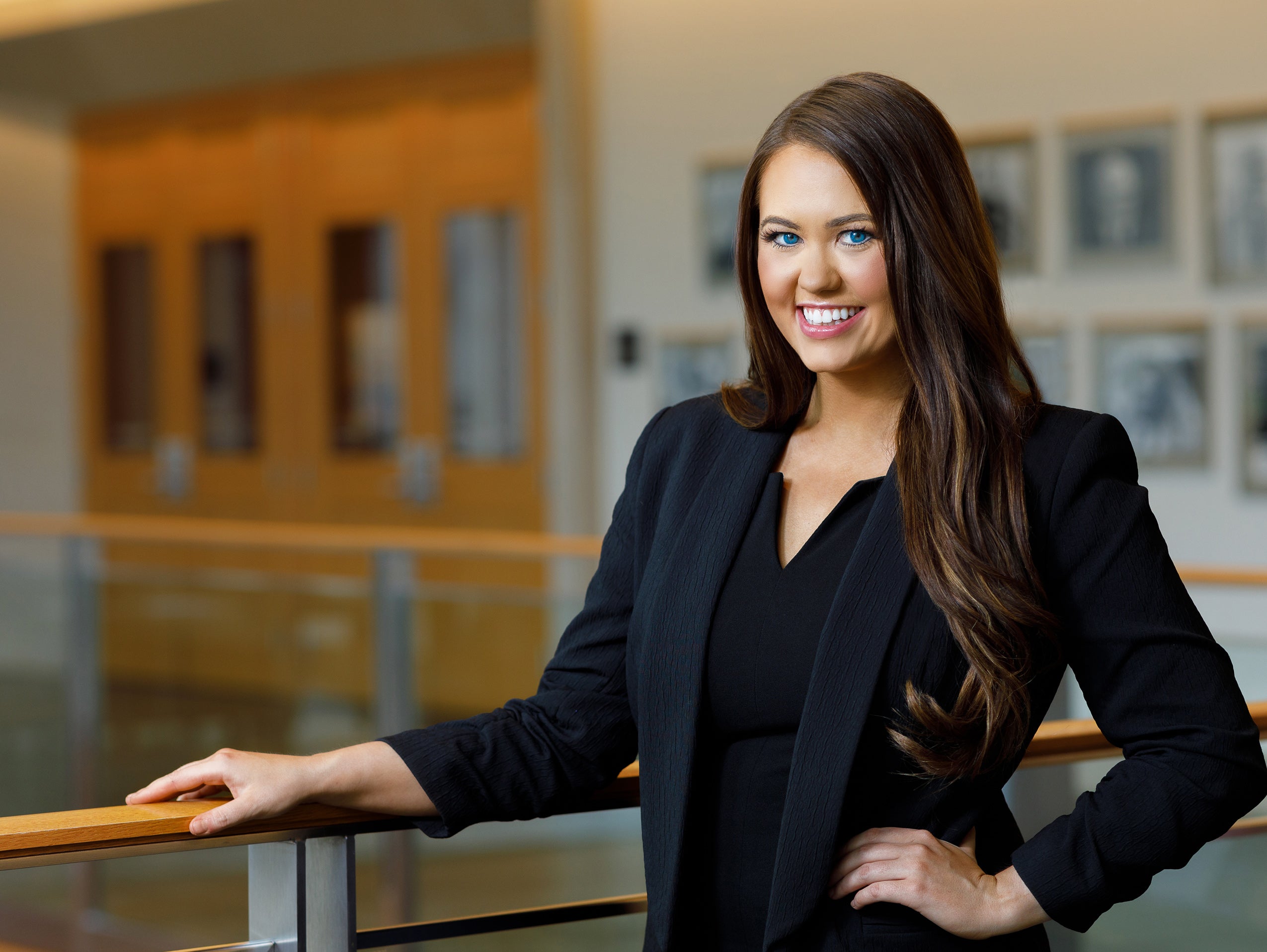
COVID-19 had few benefits, but for Cara Mund the pandemic offered an unexpected upside. Mund, a Brown University alumna, had just transferred to Harvard Law after her first year in law school when the pandemic shut down in-person instruction. But while online learning meant joining her class remotely — a potentially awkward transition — Mund recalled the camaraderie the crisis evoked. “Coming into a brand-new school and trying to meet the other transfers was a unique experience, but we were all going through it together,” she said.
Learning remotely from her home in North Dakota would also offer the new Harvard Law student a surprise advantage. Unlike much of the country, Mund’s home state did not shut down its court system during the pandemic. In addition, while Massachusetts law mandates that only third-year law students can act as student attorneys, North Dakota allows second-year law students to do so as well. Mund saw an opportunity. “I thought, well, if I’m going to be getting a fully remote education, if I can supplement it with some in-person experience, I will.”
With permission from Lecturer John J. Corrigan ’87, Mund enrolled in Harvard Law School’s Criminal Prosecution Clinic, which is typically only open to third-year students. Through the program, Mund was able to work in a limited capacity as a student attorney in the Morton County State’s Attorney’s Office.
“It was an incredible opportunity to not only get that clinical experience but also to build advocacy skills,” she said. “I’m fortunate that both my health and North Dakota allowed me to have that experience.” Read Cara’s story
Tyler Patrick
Born to serve
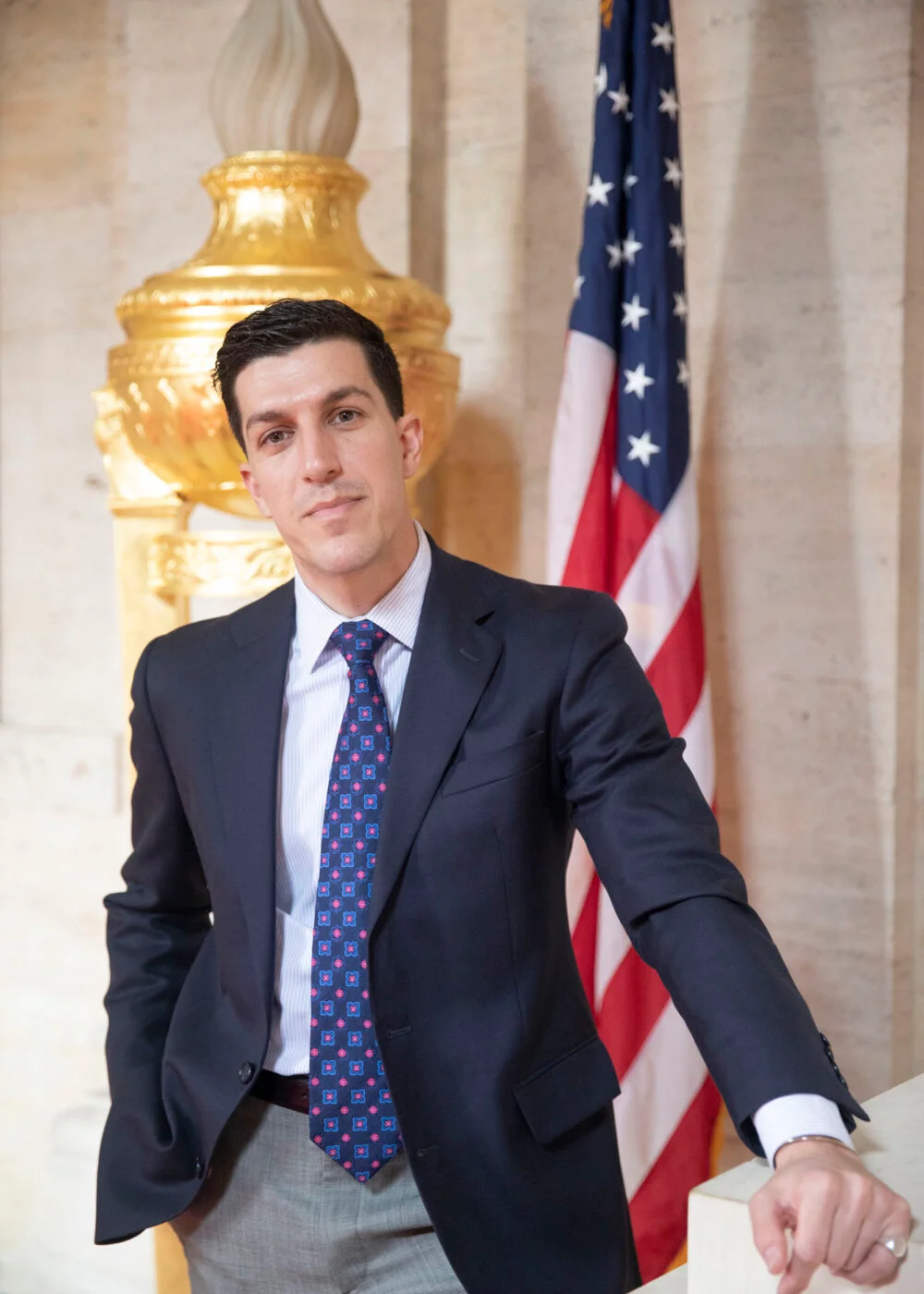
Tyler Patrick started planning a life of service when he was a boy. The past four years have given shape to that plan.
A native of Columbus, Ohio, Patrick, has been working on both a master’s in international development at Princeton and a J.D. in international and comparative law at Harvard Law School. If that wasn’t enough, in June of last year he was commissioned as an officer in the Marine Corps.
How Patrick took on the study of both international law and public policy, and a commission with the Marines, is a tale of hard work and perseverance shaped by his Catholic upbringing. Although he has cut ties with the faith, Patrick said the lessons of his religious schooling remain front and center in his mind.
“The biggest influence I had growing up was Catholic social teaching and the idea that a life well-lived is a life of service,” said Patrick, whose journey to Harvard began six years ago and nearly 8,000 miles away, in the Pacific islands of Micronesia, where he traveled in 2016 on the advice of a mentor at Georgetown’s Walsh School of Public Affairs. Read Tyler’s story
Jesselina Rana
A focus on empowerment
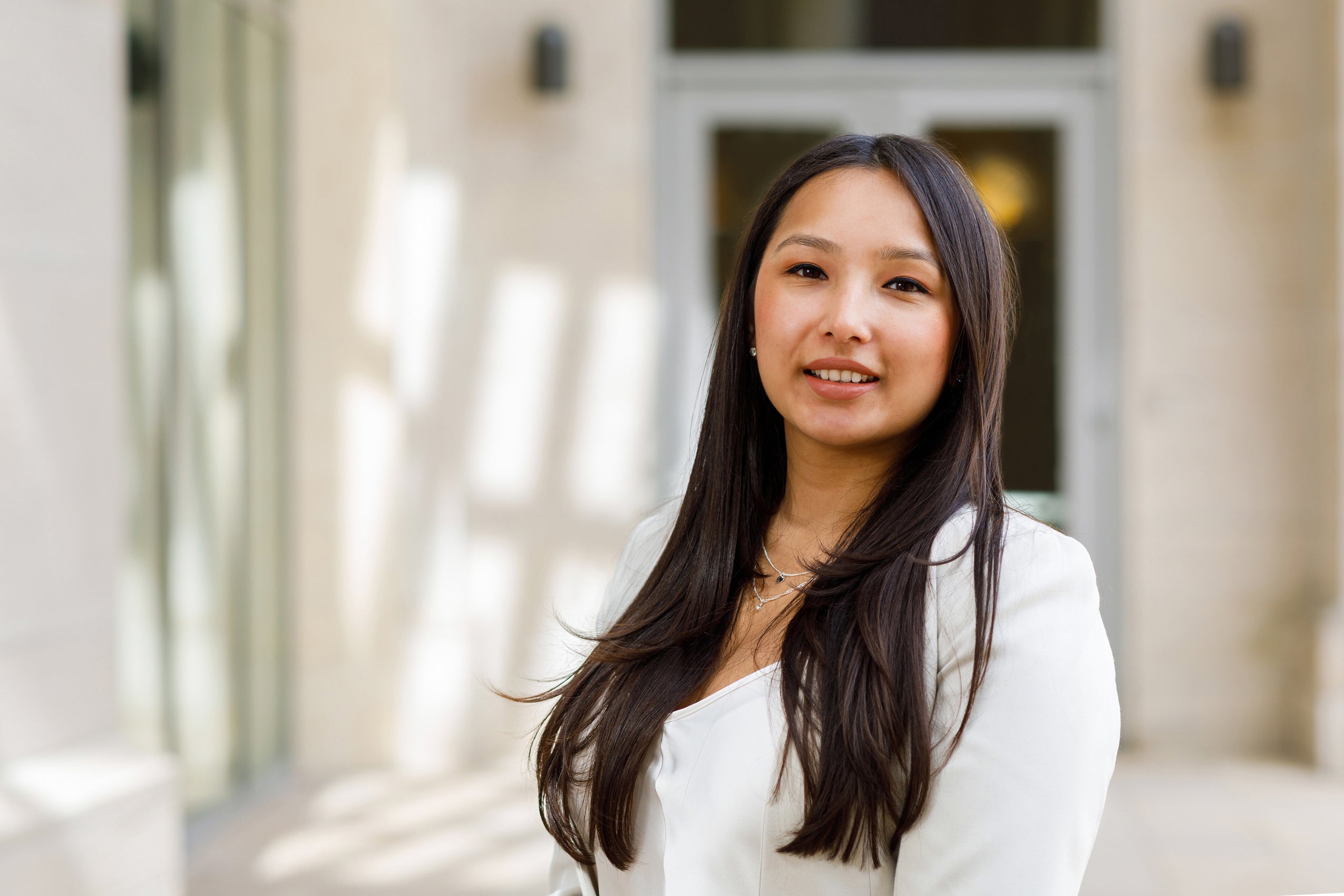
Four years ago, Jesselina Rana was studying for the bar in Nepal and looking for a job after earning a law degree from National Law University, Delhi, in India, where she concentrated in women’s rights and human rights. Her then acquaintance Shubhangi Rana, a civil engineer, was also job-hunting, and as they sat over coffee in Katmandu, they hit upon an idea.
In India, universities and some other public places had vending machines that sold sanitary napkins, but there was nothing similar in Nepal. The two friends decided to establish a social business that would generate income, but also have an important social impact by providing women with a much-needed service. They decided to start with a small project by importing ten vending machines into Nepal, and very quickly, their business, Pad2Go, was born.
“We were not just selling a product but creating a market for a product that never existed,” said Rana, who during her graduate studies at Harvard Law School this year has continued her focus on women’s and human rights. “In Hindu culture, at least in Nepal, menstruation is seen as something impure.” During their menstrual cycles, women are often expected to sleep separately from their husbands, or even, in rural areas, to sleep outside of the house in a cow shed. “We thought it would be a big challenge to create a market within a taboo concept like that of menstruation.” Read Jesselina’s story
Jacob Richards
Engaging in good faith discussion
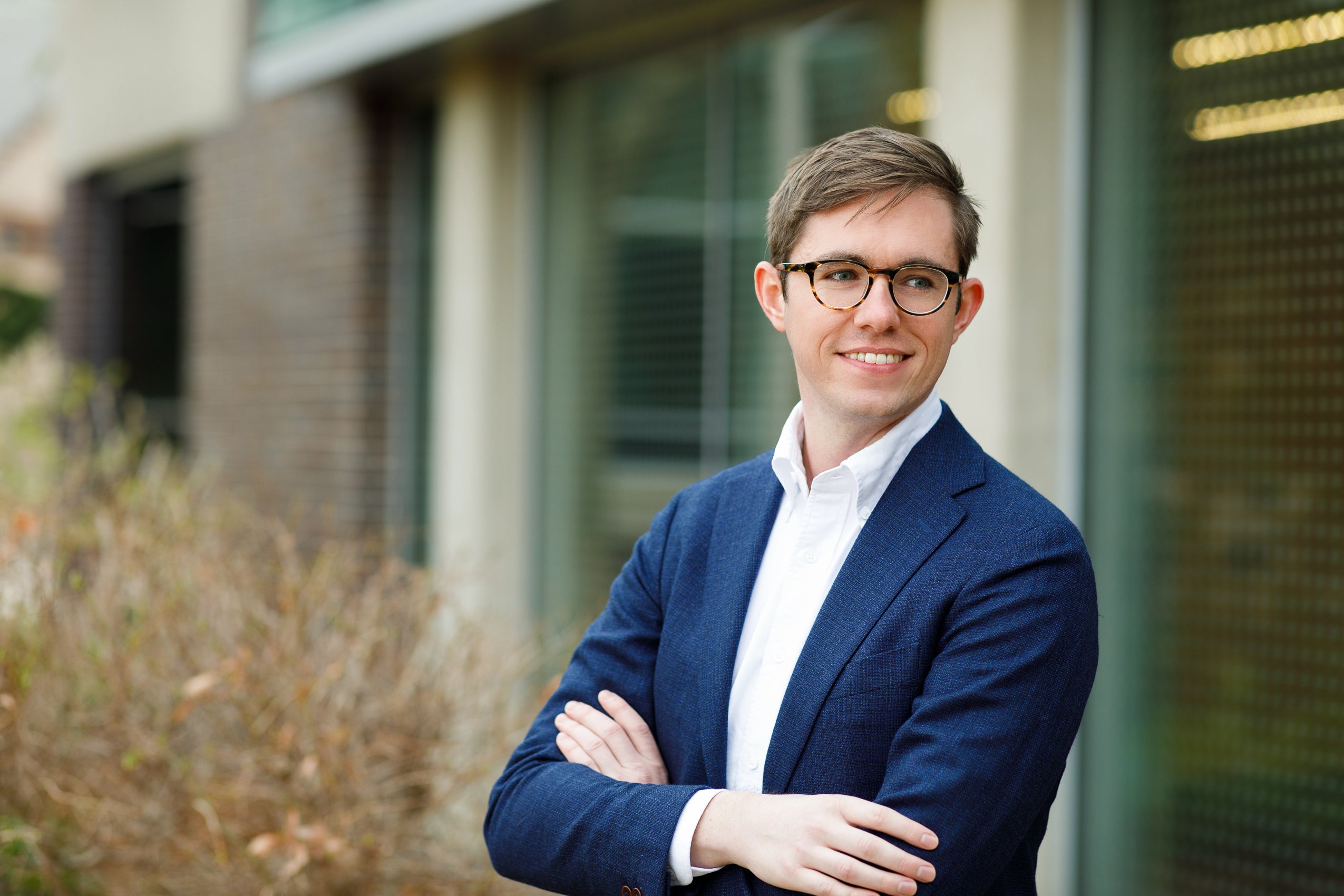
Graduating Harvard Law School student Jacob Richards says he’s been pleased with how well his conservative perspective has been accepted by colleagues across campus over the past three years.
“I came into law school wondering if I’d get shunned for voicing conservative views,” said Richards, president of the Harvard Federalist Society. “Instead, I’ve found that most of my peers are eager and willing to engage in good faith discussion of hard issues. And the size and strength of the conservative network at HLS means that right-of-center students don’t feel socially isolated here like they might at smaller schools.”
The first law student in his family, Richards was raised in Phoenix and grew up admiring Arizona Republicans like former Senators John McCain and Jeff Flake, who fell somewhat outside the conservative mainstream. And he learned at an early age to appreciate a bit of spirited political discourse. Read Jacob’s story
